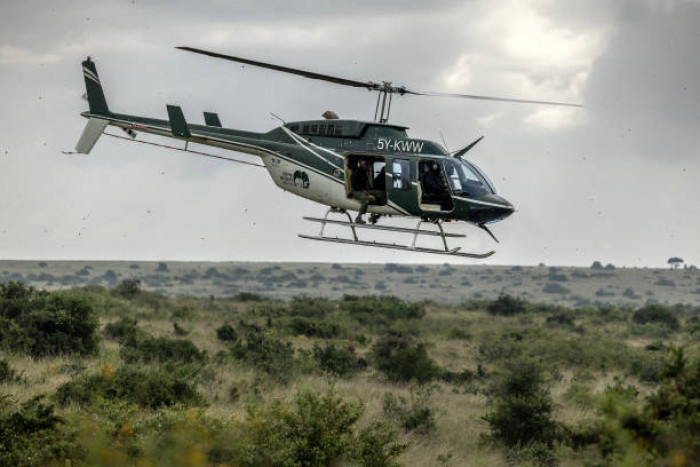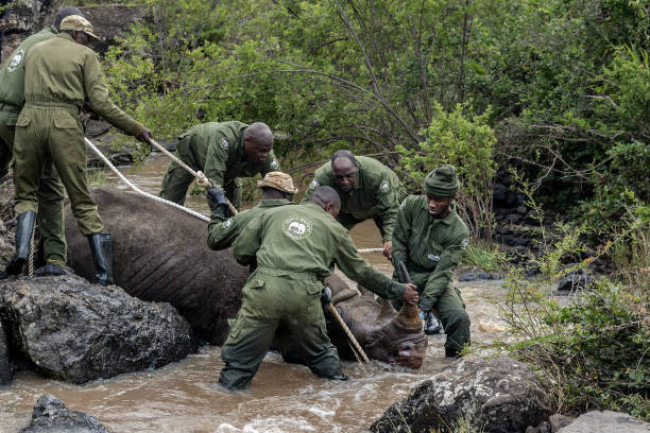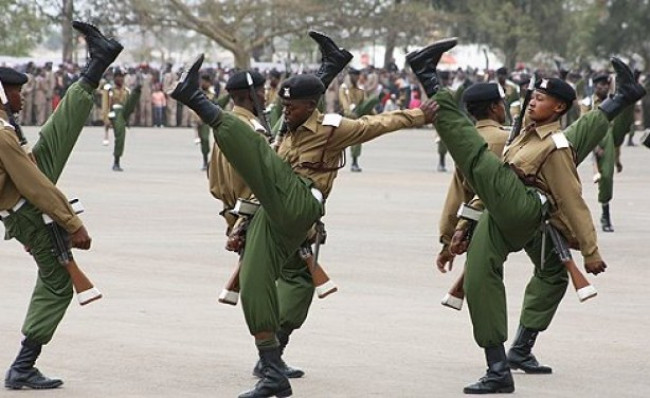Embarking on a career as a cadet or ranger in Kenya is a noble and challenging pursuit. These roles require a unique set of skills that go beyond physical fitness and academic excellence. Candidates must develop a well-rounded skill set to succeed in training and excel in their duties. This article explores the essential skills needed for Kenya's cadet and ranger candidates, highlighting key areas for development and preparation.

Physical Fitness
Endurance and Strength
Physical fitness is a cornerstone for Cadet and Rangers Recruitement candidates. Training programs are rigorous and demand high levels of endurance and strength. Candidates should focus on cardiovascular exercises like running, swimming, and cycling to build stamina. These activities not only improve cardiovascular health but also prepare candidates for long marches and physically demanding tasks. Strength training, including weightlifting and bodyweight exercises, is crucial for building muscle mass and resilience. This combination of endurance and strength ensures that candidates can perform various physical tasks efficiently, from carrying heavy equipment to enduring prolonged physical exertion.
Agility and Flexibility
Agility and flexibility are crucial for maneuvering through challenging terrains and executing complex tasks. Candidates need to be quick on their feet and capable of adapting to rapidly changing environments. Incorporating activities such as yoga or pilates can enhance flexibility, improving range of motion and reducing the risk of injury. Agility drills, like ladder exercises and cone drills, can improve reaction times and coordination, essential for responding to unexpected obstacles and maintaining peak performance in diverse situations.
Mental Resilience
Stress Management
The ability to manage stress is vital for success in the demanding environments faced by cadets and rangers. Training environments are often high-pressure, requiring candidates to remain calm and focused under duress. Techniques such as meditation, deep breathing, and mindfulness can help candidates maintain mental clarity and composure. These practices not only reduce stress levels but also enhance decision-making capabilities, allowing candidates to respond effectively to challenges without becoming overwhelmed.
Adaptability
Adaptability is essential in dynamic situations. Candidates must be able to adjust quickly to changing conditions and unexpected challenges. This skill involves being open to new ideas, willing to learn from mistakes, and flexible in thinking. Developing a mindset of adaptability enables candidates to thrive in unpredictable environments, where quick decision-making and creative problem-solving are often required. Training scenarios should incorporate unpredictable elements to help candidates build this crucial skill.
Leadership and Teamwork
Leading by Example
Leadership skills are imperative for cadets and rangers, who often take on significant responsibilities. Candidates should cultivate the ability to lead by example, demonstrating integrity, accountability, and dedication. Effective leaders inspire trust and respect, guiding their teams through challenges with confidence and decisiveness. Leadership training should focus on developing these qualities, emphasizing the importance of setting a positive example for others to follow.
Collaboration
Teamwork is a core component of military operations. Candidates must work effectively with others, fostering communication, cooperation, and mutual respect. Participating in group activities and team sports can help build these skills. Team-building exercises in training environments encourage candidates to understand their strengths and weaknesses, allowing them to contribute effectively to group efforts. Collaborative skills are essential for executing coordinated operations and ensuring mission success.
Communication Skills
Verbal and Non-Verbal Communication
Effective communication is essential for conveying information and commands clearly. Candidates should practice both verbal and non-verbal communication skills, including body language, eye contact, and active listening. Clear communication minimizes misunderstandings and ensures that instructions are followed accurately. Training programs should incorporate communication exercises that challenge candidates to convey complex information succinctly and effectively.
Conflict Resolution
The ability to resolve conflicts is crucial in maintaining harmony within teams. Candidates should learn strategies for addressing disagreements constructively, focusing on negotiation and compromise. Conflict resolution skills help prevent small issues from escalating into larger problems, fostering a positive team dynamic. Training should emphasize the importance of empathy, patience, and understanding in resolving conflicts, equipping candidates with the tools to navigate interpersonal challenges.
Problem-Solving and Critical Thinking
Analytical Skills
Cadets and rangers often face complex situations requiring quick analysis and decision-making. Developing strong analytical skills enables candidates to evaluate scenarios, identify solutions, and execute plans efficiently. Analytical thinking involves breaking down problems into manageable parts, considering multiple perspectives, and making informed decisions based on available data. Training exercises should simulate real-world challenges, encouraging candidates to think critically and strategically.
Creativity
Creative thinking is valuable for devising innovative solutions to unforeseen challenges. Encouraging a creative mindset allows candidates to approach problems from different angles and develop effective strategies. Creativity in problem-solving involves thinking outside the box and exploring unconventional solutions. Training should foster an environment where candidates feel empowered to experiment and innovate, enhancing their ability to tackle complex issues creatively.
Technical Proficiency
Weapon Handling
Proficiency in handling weapons is fundamental for cadets and rangers. Candidates must learn proper safety protocols, maintenance, and usage techniques through rigorous training. Mastery of weapon handling ensures that candidates can operate firearms safely and effectively, minimizing risks to themselves and others. Training should emphasize the importance of precision, discipline, and responsibility in all aspects of weapon management.
Navigation Skills
Navigation skills are crucial for operating in diverse environments. Candidates should become adept at using maps, compasses, and GPS devices to traverse unfamiliar territories. Navigation training involves understanding topographical maps, calculating distances, and plotting routes. These skills enable candidates to move efficiently and safely in various terrains, ensuring successful completion of missions in challenging environments.
Cultural Awareness
Understanding Local Communities
Cultural awareness is vital for cadets and rangers working in various regions across Kenya. Candidates should learn about local customs, traditions, and languages to build rapport and foster positive relationships with communities. Understanding cultural nuances enhances communication and cooperation, essential for successful interactions with diverse populations. Training should incorporate cultural education, providing candidates with insights into the communities they serve.
Respect and Sensitivity
Respect and sensitivity towards cultural differences are essential. Candidates must approach diverse communities with an open mind and willingness to learn, ensuring respectful interactions. Demonstrating cultural sensitivity fosters trust and collaboration, paving the way for successful partnerships with local populations. Training should emphasize the importance of respecting cultural differences and valuing diversity, equipping candidates with the skills to engage respectfully with all individuals.
Emotional Intelligence
Self-Awareness
Emotional intelligence involves understanding one's emotions and their impact on others. Candidates should cultivate self-awareness to manage emotions effectively and maintain professionalism in challenging situations. Self-awareness allows candidates to recognize their emotional triggers and respond appropriately, preventing negative emotions from affecting decision-making and interactions. Training should focus on developing emotional intelligence, enhancing candidates' ability to navigate complex interpersonal dynamics.
Empathy
Empathy allows candidates to understand and relate to the emotions of others. This skill is crucial for building trust and rapport with teammates and local populations. Empathetic candidates can effectively address concerns, resolve conflicts, and foster a supportive team environment. Training should incorporate empathy-building exercises, encouraging candidates to consider others' perspectives and respond with compassion and understanding.
Time Management
Prioritization
Effective time management is necessary for balancing multiple tasks and responsibilities. Candidates should develop prioritization skills to ensure that critical tasks are completed efficiently and deadlines are met. Prioritization involves assessing the urgency and importance of tasks, allowing candidates to allocate time and resources effectively. Training should include time management workshops, teaching candidates strategies for optimizing productivity and minimizing procrastination.
Planning and Organization
Organizational skills enable candidates to plan and execute operations systematically. Developing routines and schedules can help manage time effectively and enhance productivity. Planning and organization involve setting clear goals, creating action plans, and monitoring progress. Training should emphasize the importance of organization in achieving mission objectives, equipping candidates with the tools to succeed in complex operational environments.
Technological Competence
Familiarity with Military Technology
Modern cadets and rangers must be familiar with technological tools used in operations. Candidates should gain proficiency in using communication devices, surveillance equipment, and other military technologies.
Understanding technological advancements enhances operational efficiency and effectiveness, allowing candidates to leverage technology to achieve mission success. Training should incorporate hands-on experience with military technology, ensuring candidates are well-versed in its applications.
Cybersecurity Awareness
As digital threats become more prevalent, understanding cybersecurity is increasingly important. Candidates should be aware of best practices to protect sensitive information and maintain operational security. Cybersecurity training involves recognizing potential threats, implementing protective measures, and responding to security breaches. By prioritizing cybersecurity awareness, candidates can safeguard critical information and contribute to overall mission success.
Health and Nutrition
Balanced Diet
A balanced diet is crucial for maintaining physical and mental performance. Candidates should learn about nutrition and develop healthy eating habits to support their training and duties. Proper nutrition provides the energy and nutrients needed for peak performance, enhancing endurance and recovery. Training should include nutritional education, encouraging candidates to make informed dietary choices that support their overall well-being.
Hydration
Proper hydration is essential for overall health and endurance. Candidates should be aware of the importance of staying hydrated, particularly during intense physical activities. Hydration supports cognitive function, physical performance, and recovery, ensuring candidates can perform at their best. Training should emphasize the significance of maintaining hydration levels, providing candidates with strategies for staying hydrated in various environments.
Conclusion
Aspiring cadet and ranger candidates in Kenya must develop a comprehensive set of skills to excel in their roles. By focusing on physical fitness, mental resilience, leadership, communication, problem-solving, technical proficiency, cultural awareness, emotional intelligence, time management, technological competence, and health, candidates can prepare themselves for the challenges ahead. With dedication and commitment, these essential skills will empower candidates to serve their country with distinction and honor. Through continuous development and training, candidates can build a solid foundation for successful careers as cadets and rangers, contributing to the safety and security of their nation.












